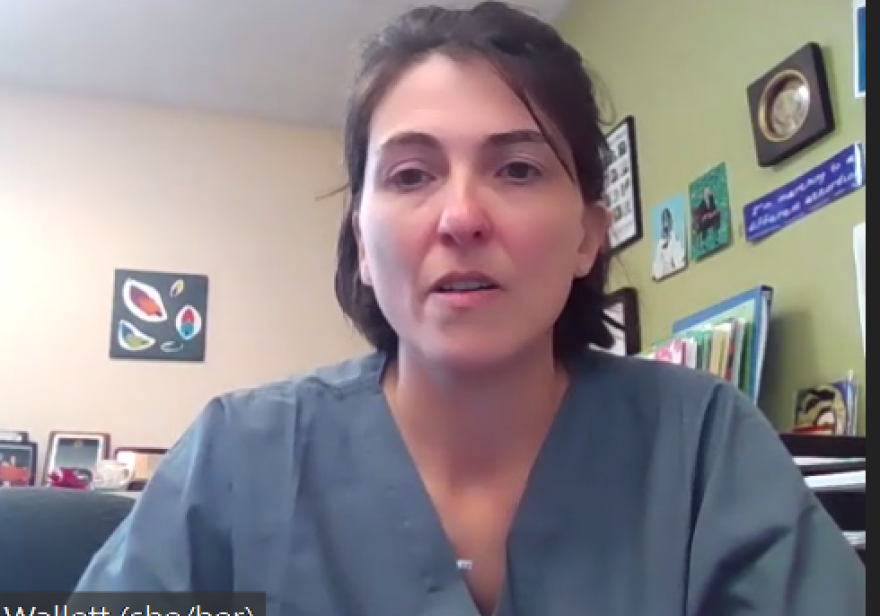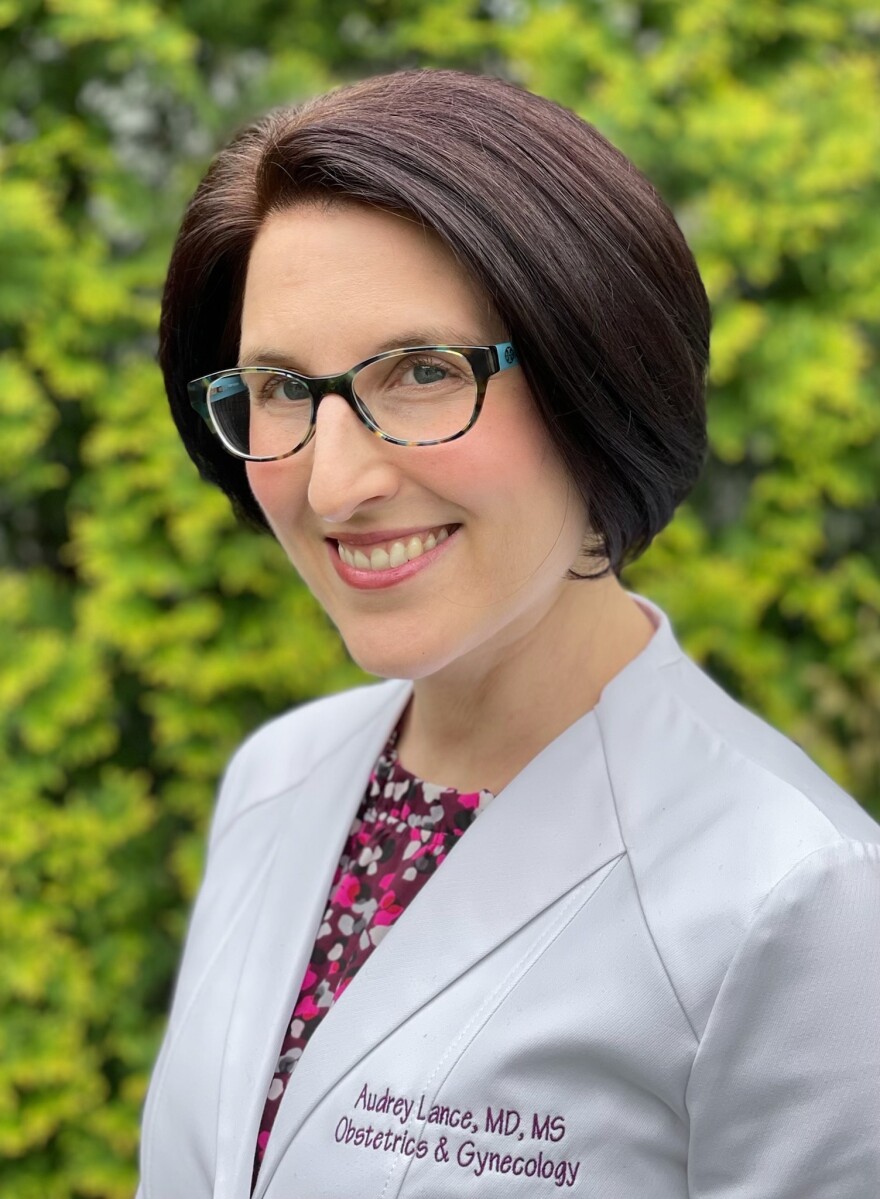Dr. Sarah Wallett wants her Michigan patients to know one thing: abortion is still legal in the state.
“We’re trying to get that message out to everybody: ‘Come to your appointment next week. Come to your appointment this afternoon. We are here for you,’” said Wallet, the Chief Medical Officer of Planned Parenthood of Michigan.
Less than an hour after the U.S. Supreme Court overturned Roe v. Wade, Wallett was sitting in her clinic office in her teal scrubs, eyes red and bleary from crying. Michigan has about 30 health clinics that offer abortion services, and staff at multiple sites said Friday’s news was met with tears, anger, and a commitment to continuing to provide abortions — at least while they still can. “I do worry that people will be confused" in the wake of Roe v. Wade being overturned," she said. "So I can't say it often enough: Abortion is legal in Michigan. You can still access that care here today.”

Wallett is actually part of the reason it’s still legal in Michigan right now. She’s part of a lawsuit filed by Planned Parenthood of Michigan earlier this spring to block the state’s 1931 abortion ban from going into effect. The law would make providing an abortion a felony, even in the case of rape or incest, with an exemption only to “preserve the life” of the pregnant person.
A judge recently issued a preliminary injunction in the case, which means until the court makes a final decision, the 1931 law can’t go into effect. But in the meantime, Wallett said they’re expecting an influx of patients from nearby states that are banning or seriously restricting abortion.
“Places like Wisconsin, places like Ohio, where there’ll be significant bans immediately put in place. And some of those patients will come to Michigan for that. So we're preparing to help support them and see as many patients as we can.”
Dr. Audrey Lance, an OB-GYN at Northland Family Planning, had to break the news about Roe to her staff Friday morning. “They are in shock,” Lance said. “And people are crying and there's a lot of swearing. And I just told my team that, ‘I know this is incredibly hard, but we are in the best place possible that we could be right now. We are with family, and we are going to take great care of our patients today.’ And that if anybody needed a break today to feel free to take that. Because it's going to be a hard day.”
The patients who come in seeking abortions range from ages 13 to 43, Lance said. “They are doctors, lawyers, cashiers, farm workers, everybody.”

And if abortion does become illegal in Michigan, many of those women may not be to travel to a state where it is still legal, she said. Going to Illinois, New York, or Ontario for the procedure would take gas money, possibly a hotel, childcare and getting time off work. “It's just not going to be possible for so many people.”
It would also be disproportionately dangerous for Black women in Michigan, where they are nearly three times more likely to die from pregnancy-related causes than white women.
“Particularly as it pertains to black people and other people of color … the Supreme Court has effectively just blocked not only Roe v. Wade, but has blocked the trajectory of people's lives,” said Paula Thornton Greear, the president and CEO of Planned Parenthood of Michigan.
She said the ruling blocks women from making "a decision for themselves to carry a pregnancy forward," and that ripples into "whether based on that, they can decide to continue their education. Whether based on that, they can get a job."
"When I think back to when I was younger and I had to get abortion care, and what if I couldn't? And where would I be?”
Michigan’s Attorney General Dana Nessel has said that even if the 1931 abortion ban goes into effect, she won’t prosecute anyone. But it’s not that simple. If abortion does become illegal in the state, medical insurers may stop covering doctors who provide it. And some local county prosecutors have said they will prosecute doctors who provide abortions.
“When you're faced with … actual criminal penalties, that I could go to prison for performing an abortion?” Lance said. “You know, as a mom, I don't know if I'm going to take that risk.”
But for now, Lance said, she’s just going to keep doing her job. And that means providing abortions.
Copyright 2022 Michigan Radio. To see more, visit Michigan Radio.


